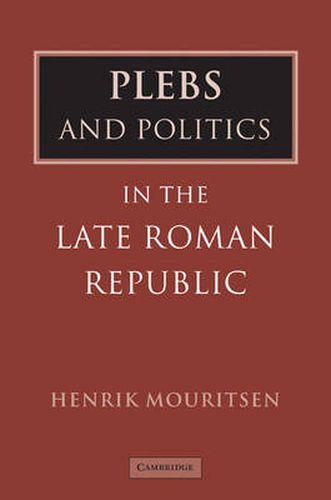Readings Newsletter
Become a Readings Member to make your shopping experience even easier.
Sign in or sign up for free!
You’re not far away from qualifying for FREE standard shipping within Australia
You’ve qualified for FREE standard shipping within Australia
The cart is loading…






Plebs and Politics in the Late Roman Republic analyses the political role of the masses in a profoundly aristocratic society. Constitutionally the populus Romanus wielded almost unlimited powers, controlling legislation and the election of officials, a fact which has inspired ‘democratic’ readings of the Roman republic. In this book a distinction is drawn between the formal powers of the Roman people and the practical realisation of these powers. The question is approached from a quantitative as well as a qualitative perspective, asking how large these crowds were, and how their size affected their social composition. Building on those investigations, the different types of meetings and assemblies are analysed. The result is a new picture of the place of the masses in the running of the Roman state, which challenges the ‘democratic’ interpretation, and presents a society riven by social conflicts and a widening gap between rich and poor.
$9.00 standard shipping within Australia
FREE standard shipping within Australia for orders over $100.00
Express & International shipping calculated at checkout
Plebs and Politics in the Late Roman Republic analyses the political role of the masses in a profoundly aristocratic society. Constitutionally the populus Romanus wielded almost unlimited powers, controlling legislation and the election of officials, a fact which has inspired ‘democratic’ readings of the Roman republic. In this book a distinction is drawn between the formal powers of the Roman people and the practical realisation of these powers. The question is approached from a quantitative as well as a qualitative perspective, asking how large these crowds were, and how their size affected their social composition. Building on those investigations, the different types of meetings and assemblies are analysed. The result is a new picture of the place of the masses in the running of the Roman state, which challenges the ‘democratic’ interpretation, and presents a society riven by social conflicts and a widening gap between rich and poor.